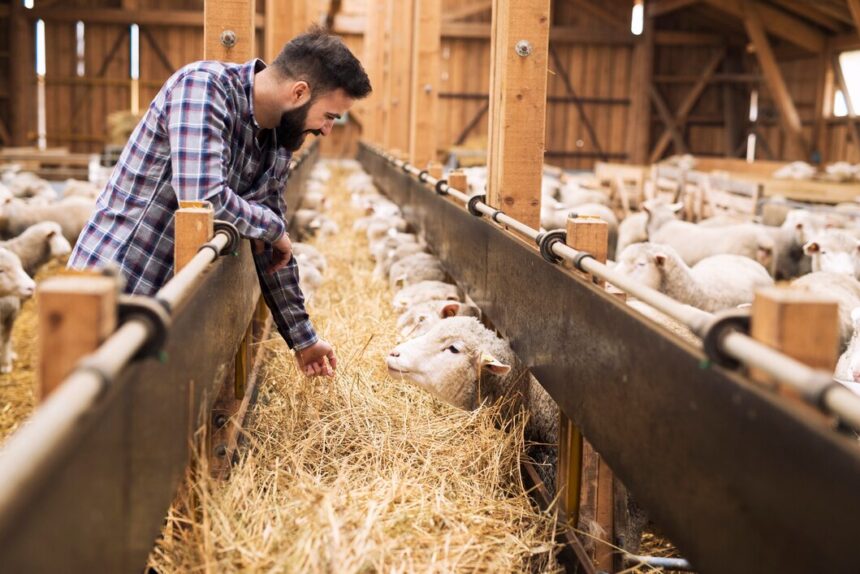Livestock breeding is a critical aspect of agricultural production in South Africa, where livestock farming contributes significantly to the economy. Improving the genetic quality of livestock not only enhances productivity but also increases the profitability of farming operations. Here are key techniques and strategies that South African farmers can employ to achieve better genetics in their livestock.
1. Understanding Genetic Principles
Before diving into breeding techniques, it’s essential for farmers to understand the basic principles of genetics. Key concepts such as heritability, genotype, phenotype, and breeding value play a crucial role in making informed breeding decisions. Farmers should invest time in education and training to grasp these concepts fully.
2. Selecting Breeding Stock
Choosing the right breeding stock is foundational for improving genetics. Farmers should select animals based on their performance, health, and genetic background. Look for traits such as growth rate, feed efficiency, reproductive performance, and disease resistance. Tools such as performance records and genetic evaluations can aid in making informed selections.
3. Utilizing Artificial Insemination (AI)
Artificial insemination allows farmers to access superior genetics from high-quality sires without the need for maintaining a bull on the farm. AI enables the introduction of diverse genetic material, increasing the likelihood of producing offspring with desirable traits. Farmers should work with experienced veterinarians to implement AI effectively.
4. Employing Genetic Testing
Genetic testing provides valuable insights into the genetic makeup of livestock. Tests can identify carriers of genetic disorders, assess breeding potential, and predict offspring performance. By utilizing these tests, farmers can make more informed breeding decisions and avoid potential issues down the line.
5. Implementing Selective Breeding
Selective breeding involves choosing specific animals for reproduction based on desired traits. This technique focuses on improving characteristics such as meat quality, milk production, and reproductive efficiency. By consistently selecting the best animals, farmers can gradually enhance the overall genetic quality of their herd.
6. Crossbreeding Strategies
Crossbreeding can be an effective way to combine desirable traits from different breeds, resulting in hybrid vigor or heterosis. This technique can enhance growth rates, fertility, and disease resistance. Farmers should carefully consider which breeds to cross based on their production goals and environmental conditions.
7. Utilizing Performance Records
Keeping accurate and detailed performance records is vital for assessing breeding success. Farmers should track growth rates, feed conversion, reproductive performance, and health status of their livestock. Analyzing this data helps identify trends, inform breeding decisions, and measure the impact of genetic improvements over time.
8. Focus on Health and Nutrition
Genetic potential can only be realized if livestock are healthy and well-nourished. Providing balanced diets and ensuring proper health care is crucial. Healthy animals exhibit better growth rates and reproductive performance, maximizing the benefits of genetic improvements.
9. Participating in Breeding Programs
Joining established breeding programs or associations can provide farmers with access to resources, expertise, and superior genetics. These programs often offer guidelines, training, and support for implementing effective breeding strategies.
10. Staying Informed and Adapting
The field of genetics is constantly evolving, with new research and technologies emerging regularly. Farmers should stay informed about the latest developments in livestock genetics and breeding techniques. Attending workshops, conferences, and networking with other farmers can provide valuable insights and foster collaboration.
Improving livestock genetics is a continuous process that requires dedication, knowledge, and effective management. By implementing these techniques, South African farmers can enhance the quality and productivity of their livestock, ultimately leading to increased profitability and sustainability in their operations. Embracing modern breeding strategies not only benefits individual farms but also contributes to the overall growth of the South African agricultural sector.
Join 'Farmers Mag' WhatsApp Channel
Get the latest Farming news and tips delivered straight to your WhatsApp
CLICK HERE TO JOIN






